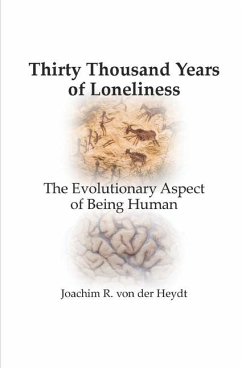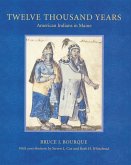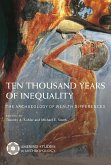This is the unsettling story of how the human evolutionary heritage influences today's society and politics. How the human social brain emerged, how evolution created the two-parent family, why the beautiful sex in humans is female, why humans love their parents and their grandchildren, and why many people love the autocratic rule of power. How social 'engenes' evolved that enable extensive collaboration and powerful civilization, and why they can lead to horrific breakdowns of civilization like the holocaust. We must try to understand the evolutionary roots of the human mind: not only the patterns of our behavior, and where they come from, but also our values, and where they come from. And we should understand which of our heritable behavioral engenes support, and which endanger the project of a free and just society. What is special about this book? Much of the current literature about evolutionary psychology tries to connect behavioral traits to their putative evolutionary adaptive benefits, focusing on specific aspects, e.g. "The cognitive revolution", "The moral animal" or "The faith instinct". But they leave out the most important part of the theory, the brain. Evolution did not simply create heritable behavioral traits, it created heritable brain mechanisms, and these produce the behavioral traits. Omission of the brain is characteristic of many treatments of human nature. This book places the 'engenes' of the brain at the center. The author is a neuroscientist who studied perceptual mechanisms. He discovered that neurons in the visual cortex signal not only the visible objects but also things that are perceived subjectively, and how neurons group perceptual elements to perceptual objects. Here he presents a provocative discussion of the evolutionary aspect of the human mind, including recent insights from paleontology, behavioral genetics, and population-genetic modelling. Three features set this book apart: (1) Focusing on the engenes of the brain, this treatise is more systematic than the usual evolutionary psychology texts because it infers how those engenes might have evolved. It's not about the origin of individual behavioral traits, but about the origin of the engenes. Each engene produces a number of traits. The "Family engene" produces the basic structure of human society and also feelings of responsibility and compassion and sense of justice. The "Strife engene" produces patriotism and also authoritarianism, sense of entitlement, love for the compatriots, and hate for "the others". (2) Another strength of this approach is that the concept of engenes implies individual variation. The genetic code varies (and, of course, upbringing and environment produce additional variation). Thus, the engenes vary in strength across the population. Each has its statistical distribution with mean and standard deviation, and "fringes" of extreme over- and under-expression. Most people have good moral intuition, some are passionate about social justice, others less so. Most people are patriotic, but some are chauvinist, xenophobic, or racist. (3) There is a third way in which this book differs from most of the existing literature. The usual treatment of human evolution and its popular view, since Darwin, emphasizes the relationship between humans and apes: humans as descendants from apes. This book points out where the human mind fundamentally differs from all the apes, considering the two-parent family, cohesion of human society across generations, cultural creativity, and genocidal tendencies. Thus, understanding the human mind comes more from understanding the differences between apes and humans than the similarities.
Hinweis: Dieser Artikel kann nur an eine deutsche Lieferadresse ausgeliefert werden.
Hinweis: Dieser Artikel kann nur an eine deutsche Lieferadresse ausgeliefert werden.






![A Book That Never Grows Old of Two Thousand Valuable Proverbs and Helpful Sayings That Everyone Should Know [microform]: They Contain the Seeds for Tr A Book That Never Grows Old of Two Thousand Valuable Proverbs and Helpful Sayings That Everyone Should Know [microform]: They Contain the Seeds for Tr](https://bilder.buecher.de/produkte/66/66160/66160968m.jpg)

